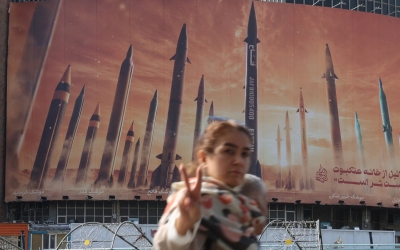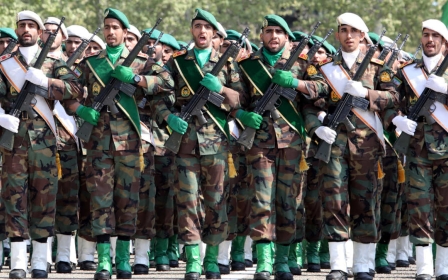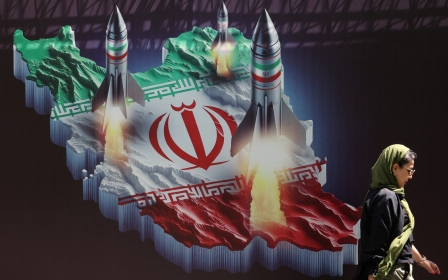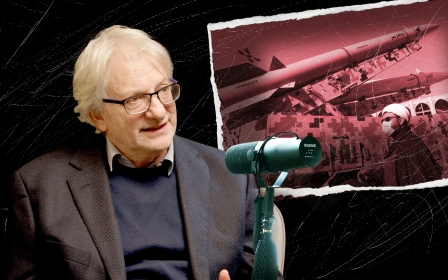Why hasn't Iran retaliated against Israel?
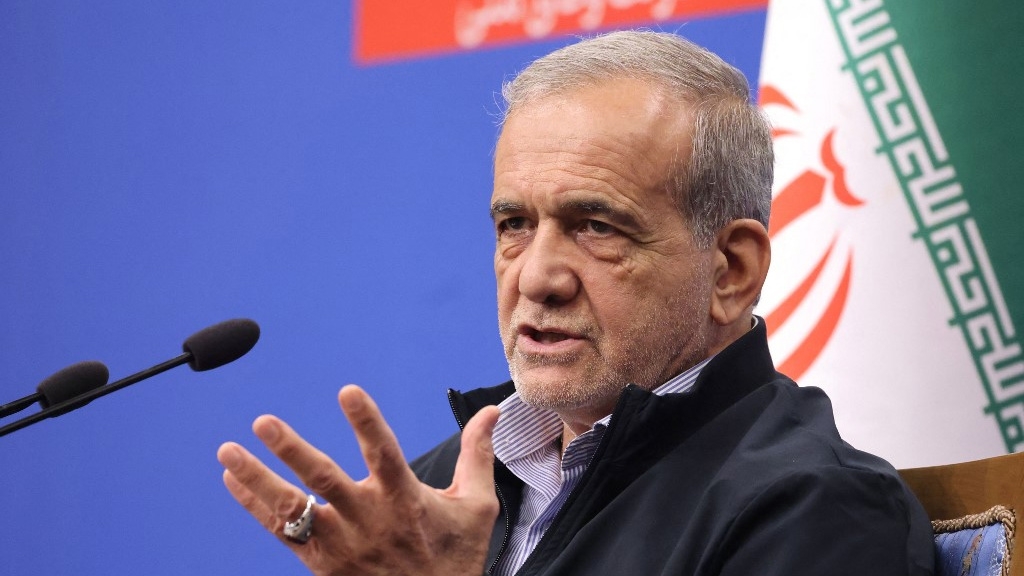
It is no longer possible to keep track of the murderous meanderings of Israel in Gaza, the occupied West Bank and now Lebanon, or its hit-and-runs in Syria, Iran, Yemen and God only knows where else.
The garrison state increasingly looks like one of the militarised Transformers in sci-fi action films, with deadly weapons sticking out of each limb. Before the world had a full grasp of its still-unfolding genocide in Gaza, it began yet another slaughter in Lebanon.
On behalf of its US and European benefactors and beneficiaries, the Israeli settler colony projects spectacular but vacuous power - and the world is left struggling to make sense of this campaign of terror.
Take, for example, the assassination of Ismail Haniyeh, who chaired the political bureau of Hamas, in Tehran this past July. This extrajudicial killing was among a series of subversive attacks carried out in recent years by Israel and the US against Iranians and other “enemies”.
In 2020, the Trump administration ordered the assassination of Qassem Soleimani, using methods perfected during the Obama presidency. Later that year, Israel killed top Iranian nuclear scientist Mohsen Fakhrizadeh.
New MEE newsletter: Jerusalem Dispatch
Sign up to get the latest insights and analysis on Israel-Palestine, alongside Turkey Unpacked and other MEE newsletters
The US and Israel are in an obvious military and intelligence alliance that aims to promote the colonial and imperial interests of both parties in hostile territory, as the native inhabitants, including Palestinians, resist their barefaced barbarism.
Soon after the assassination of Haniyeh, Iran vowed to retaliate, as the US swiftly announced that it would defend Israel - as if that were not the status quo - and deployed more military hardware to the region.
During its more recent war on Lebanon in late September, Israel also killed Hassan Nasrallah, Hezbollah's secretary-general and a number of senior commanders.
As a result, Iran is now in the spotlight as to what, if anything, it is willing to do to show the world it is anything but an opportunist benefactor and beneficiary of other nations’ resistance efforts.
Little room to retaliate
The fact, however, is that Iran has little room or will to retaliate against a rogue settler colony - not because of its own military wherewithal, but because Israel is deeply enmeshed with its partners in the US and Europe. Israel can thus act like a mad Goliath on steroids, killing innocent people to the north, south, east and west with total impunity.
The Iranian reaction, or absence of reaction, is thus a result both of prudence, if not cowardice - as well as the very nature of asymmetrical warfare in a region dominated by US military might.
Follow Middle East Eye's live coverage of the Israel-Palestine war
Israel is unlikely to do anything without the full knowledge, approval and participation of the US. Israel effectively acts like a mercenary army contracted by the US to do its unsavoury bidding. The charade of the Biden administration trying to negotiate a ceasefire is a badly executed farce.
By necessity, Iran has mastered the art of taking advantage of existing and emerging regional crises generated by the US and Israel in Afghanistan, Iraq, Palestine, Lebanon, Syria, Yemen and elsewhere. The mass slaughter in Lebanon, while the genocide in Palestine is still unfolding, could come back to haunt Israel and its US benefactors.
There is very little that Iran needs to or can do directly against the Israeli settler colony at this point
But what happened to Iran’s promised counterattack? Despite threats made back and forth, Iran never acts in a purely reactive manner. Historically, it has its own slow-motion, steady attitude, which it has used to engulf Israel in asymmetrical warfare on several fronts. But is that strategy still plausible?
Every front that engages against Israel becomes a front for Iran, too. Consider the hundreds of thousands of Israelis taking part in anti-government protests. Iran did not need to manufacture this crisis; Israel’s genocidal instincts, fully in service of the US and its imperial allies, did a fine job of that on their own.
Washington’s misguided and seemingly limitless support for Israel adds momentum to this process. But that support does not come from the goodness of the American heart: rather, the US uses Israel to its full imperial advantage. As President Joe Biden often says, “If there were not an Israel, we’d have to invent one.” Israel today functions as an American landed aircraft carrier in the Middle East.
State paranoia
Against this backdrop, Iran is watching patiently as Israel attacks Gaza, the occupied West Bank, Lebanon, Syria and Yemen, lays claim to Egyptian territories near Rafah, and slaughters tens of thousands of people. But when would that "patience" cross into cowardice and eventually cost Iran its regional clout?
Before the dust settles in each case, Iran habitually hones and turns the crisis to its own strategic advantage, bolstering its regional network of allies and operatives. The hatred and anger boiling in Washington and Tel Aviv against Tehran is precisely because they see how the Iranian regime uses their own murderous follies against them.
There is very little that Iran needs to or can do directly against the Israeli settler colony at this point. Israel has become a global pariah because of the genocide it is committing in Palestine, and now the mass slaughter in Lebanon. It is at war on multiple fronts, including internally, where one faction of Zionists protests against another.
As one Israeli observer recently wrote in Haaretz: “Judging by its political behavioral patterns, Israel is currently governed by a prime minister afflicted with acute Masada syndrome. Like in 73 C.E., he is trying to instill in Israelis the sense that we are a persecuted righteous few, surrounded by a hostile and hateful world. We are under a cruel siege and facing the threat of annihilation, with nothing to lose, and with a deep conviction that this is an existential, be-all or end-all war.”
Israel today is a paranoid garrison state whose leaders portray it as a nation surrounded by millions of people who despise its very existence. This is why Zionists and Israeli Prime Minister Benjamin Netanyahu sling ghastly “antisemitism” accusations at anyone who dares to criticise state policy.
But as global condemnation mounts, Israel’s adversaries need only to sit back and watch the regime destroy itself.
The views expressed in this article belong to the author and do not necessarily reflect the editorial policy of Middle East Eye.
Middle East Eye delivers independent and unrivalled coverage and analysis of the Middle East, North Africa and beyond. To learn more about republishing this content and the associated fees, please fill out this form. More about MEE can be found here.



